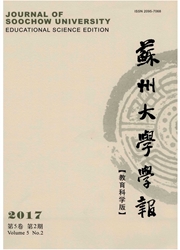

 中文摘要:
中文摘要:
自我在我们所亲熟的日常体验中总是被觉知为一个统一、独立和同一的极点式的自主体。从Descartes开始至今的自我实体论的拥护者,对于一种单一、独立和实在的实体自我的论证与寻找几乎从未停止过。然而,另一方面,神经科学从未在人脑中找到充当这种实体自我角色的脑结构,这导致有些研究者开始质疑自我的实在性,有的甚至认为所谓的实体自我无非是脑创造的一种错觉。自我的建构论者在同时反对这两种极端观点的基础上指出,自我是一个“我正在持续进行”(l-ing)的过程,正是这个过程生成了一个“我”并且在这个过程中“我”和过程本身是等同的。自我就是在这个过程中被建构起来的。
 英文摘要:
英文摘要:
In our personal daily experience,we perceive our self as a unitary independent polarized subject and we are the owner and initiator of our bodily experience and actions.From Descartes to the advocators of the substance theory of the self,there have been constant efforts trying to find or prove the existence of a real unitary independent substantial self.In contrast,the inability to find a particular neural substrate of the self has tempted some researchers to doubt the existence of a self and some even suggest that the so-called sense of self is a complete illusion.Researchers who support constructivism of the self criticize both extreme views and point out that the self is neither a thing or an entity nor an illusion,but may rather be a process.It is an ongoing process that enacts an“I”and in which the“I”is no different from this process itself.
 同期刊论文项目
同期刊论文项目
 同项目期刊论文
同项目期刊论文
 期刊信息
期刊信息
